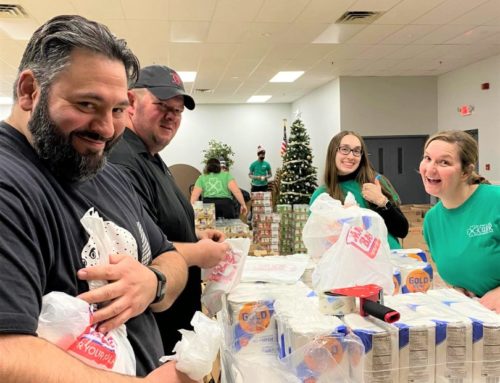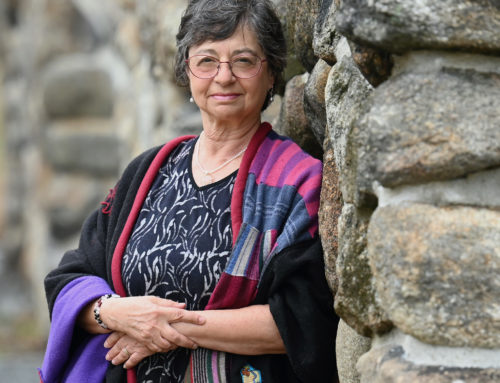WORCESTER, Mass. – Teaching can be a thankless job.
“A lot of people look at us as babysitters,” said Ibi Obomanu, a special needs teacher in the Worcester School Department. “Of course, we’re not.”
While criticism is prevalent toward teachers, especially during the pandemic, Obomanu said there are some small victories. One day, when she walked into a recent Individualized Education Program (IEP) meeting at her school, seated across the table was a mother of one of her middle school students. She was crying. Obomanu was worried.
“All I could think about was ‘what did I do? Did I do a bad job?’” she said. The mother looked up at Obomanu and repeatedly asked, “what did you do? What did you do?” At that moment, “I was really nervous. I was thinking, there goes my job.”
Obomanu, who has nearly two decades of experience working with children suffering from social-emotional disabilities, soon realized the mother’s tears were joyful.
“It was such a relief,” she said. “The mother was happy that her son, once a disruptive influence in class and at home, was now reading.”
The mother explained that her son asked if he could go to the library for the first time. The mother’s gratitude gave Obomanu, who is also a children’s book author, “the greatest feeling in the world.”
Obomanu was born in Nigeria and migrated to the U.S in 1982 with the hope of returning to Nigeria after completing her education. She decided to remain in the U.S. due to the political upheaval in her native country. A graduate of the University of Charleston with a bachelor’s degree in communication, Obomanu earned her master’s degree in special education from Assumption College in Worcester. She started her career in a small private school for intellectually challenged students and is currently teaching in the Worcester public school system. Prior to teaching, she worked with individuals with emotional and social disabilities, and deaf-blind adults. She has also worked as an in-home therapist for children with autism.
She said there is more to teaching than nourishing a child’s intellectual curiosity.
“My desire is to go beyond the classroom walls to nurture their emotional intelligence,” she said.
Obomanu wants kids to learn the “fulfilling benefits of positive social behavior” in order to influence their peers by creating a chain reaction of compassion.
“An emotionally supported child is better prepared to enter the adult world of social responsibility,” she explained. “Bad behavior is chronic. This is not who the child is. They are all human beings.”
Obomanu’s approach to teaching is simple: find what makes each child unique, despite their behavior, and show them they matter. She believes the young boy suffered from severe low self-esteem and needed to build his confidence.
“I knew he had the ability to blend the sounds. He just needed someone to build his confidence by giving him that positive recognition when he did something well. He just needed that one-on-one boost. He needed to know he could do it. And, he did it!”

Cover of “The Right Thing” by Ibi Obomanu – Courtesy Photo
Her approach to teaching social-emotional children is a common theme throughout her literary work as well.
“My books teach children that they matter,” she said. “Self-esteem is the number one building block for success.”
As a teacher and a writer, Obomanu said selling books is not her main priority. It is just another way to use voice and help give even more children some balance in their lives. She uses the acronym C.H.E.C.K. to sum up her philosophy in teaching and writing. The letter C stands for compassion; H represents honesty; E is for empathy; C is caring; and K means kindness.
“Writing is a powerful voice because it warns or teaches people a lesson. It informs people about something while also being entertaining. As a writer and teacher, I don’t just provide academics. We need to balance intellectual wellness with social wellness.”

Cover of “My Name is Anita” by Ibi Obomanu – Courtesy Photo
Obomanu credits writers like John Steinbeck and Maya Angelou, television personality Fred Rogers, and her devotion to God as major influences on her life as a teacher and writer. In Of Mice and Men, she said Steinbeck “chronicled difficulties and challenges individuals with intellectual disabilities face. Most people with intellectual disabilities require guidance to navigate the world … It’s our job to give them that chance.”
“By nurturing, encouraging and motivating children and adults, I hope they find grace and healing,” she said. “I sometimes run into that mother in the grocery store. She’s no longer crying. She is happy to see me and that is the best feeling. All her child needed was a chance.”
Obomanu’s books are available on her website at www.childrenwithbighearts.com.







Ibi is an incredibly inspiring woman. It is wonderful that she is helping every child she works with to succeed.